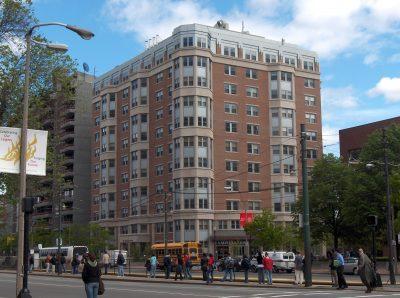Boston University Real Estate is planning to use vacant rooms in graduate student housing as quarantine spaces for students who have been exposed to confirmed COVID-19 cases during the Fall semester.

Any confirmed positive cases will be moved from these apartments to designated COVID-19-positive spaces.
BU Spokesperson Colin Riley said no one determined to have the coronavirus will be placed in graduate housing, but he did not mention whether students discovered to have been exposed to the virus would be.
“No one who has tested positive for COVID-19 will be put in graduate student housing,” Riley said. “If you test positive, you’re going to be relocated, assisted and monitored.”
A petition created Saturday by graduate student Qingyan Luo has garnered more than 335 signatures as of Tuesday, and is arguing against housing quarantined students with known healthy students.
“The administration should not assume it ‘safe’ to place individuals under quarantine into an occupied residence building just because the individual is not showing any symptoms,” the petition states. “Studies and experiences have shown that some people carrying the virus can show very little symptoms, and chances are high that these people could pass it on unknowingly.”
One graduate student discovered the information after asking to renew her lease for an additional two weeks but was denied due to the room being planned for quarantine housing. Graduate students then confirmed this was true with BU Real Estate.
Sanaya Shroff, former president of BU Graduate Women in Science and Engineering, conducted an open survey of graduate students asking about their feelings on the quarantining of suspected cases in their buildings. The most commonly polled building was 580 Commonwealth Avenue.
Among the questions featured in the survey was: “How would you feel if vacant rooms in your building were used to quarantine suspected COVID-19 cases?” Participants rated their response on a scale of one to five, with one being not concerned and five being very concerned.
Out of a total of 148 respondents, 107 people marked five, 19 marked four, 14 marked three and eight people were split evenly between two and one.
An anonymous graduate student wrote to philosophy associate professor Daniel Star that such movement of undergraduates is dangerous to the health of graduate students.
“Most graduate students in this graduate housing in the fall will be exposed to a constant flow of suspected COVID-infected students,” the student wrote. “The most alarming of it all is that they currently have no plans to disclose this information to all of their current residents.”
The letter to Star was a recap of the meeting held between them and BU Real Estate, the anonymous source said in an interview.
They said BU Real Estate claimed it hasn’t “had the opportunity to identify” isolated individual rooms to be used for quarantine instead.
The student requested that BU take the time to find separate buildings, but Malika Jeffries-EL, associate dean of the Graduate School of Arts and Sciences wrote back that this is not an option due to “practical aspects of displacing people from their homes and the legal aspects of Boston housing laws.”
Seventy total vacant rooms are scattered throughout the graduate housing buildings, with students and families living adjacent to the rooms reserved for quarantining.
Kate Lipman, a rising third-year School of Law student, said suspected cases would interact with graduate students in elevators and stairwells when entering the building, as would confirmed positive cases who are leaving the building. There are also no personnel preventing the suspected cases from leaving their rooms, to Lipman’s knowledge.
She said there are common areas such as elevators and laundry rooms that she can see as becoming potential problem areas.
As someone living in the building, Lipman said this is a scary situation.
“My next-door neighbor is one of the rooms they are planning on using and there are a bunch down the hall,” Lipman said. “It’s really scary what they’re doing and it really seems like they don’t care about the people here and students in general.”
The students living in the housing go to classes on campus and some are teaching fellows in direct contact with professors and undergraduate students. If those graduate students are exposed, transmission could exacerbate in multiple different campus populations.
Louis Jensen, a Ph.D. student in computer science, said this housing policy could have widespread ramifications.
“This is going to create a feedback loop that’s not good for anyone,” Jensen said. “It has much broader implications to the Boston University community than just to us.”




























































































































